Table of Contents
The King is Watching on PC
There’s a moment in tinyBuild and Hypnohead‘sThe King Is Watching when, after several waves of monsters and with your limited gaze flickering over your burgeoning kingdom, you realise this isn’t just a test of strategy. It’s a mirror. The glare from the throne, not unlike the glare from responsibility, lays bare not what you built, but what you failed to.
This is the game’s strength, and its curse.
Your Kingdom Under the Gaze
From the opening moments, you are the King, the de facto ruler. You survey a grid-map of tiles—some resources, some buildings, some military outposts. But there’s a twist: only the buildings within your gaze — that glowing selection overlay — are active. If you don’t look, they idle.
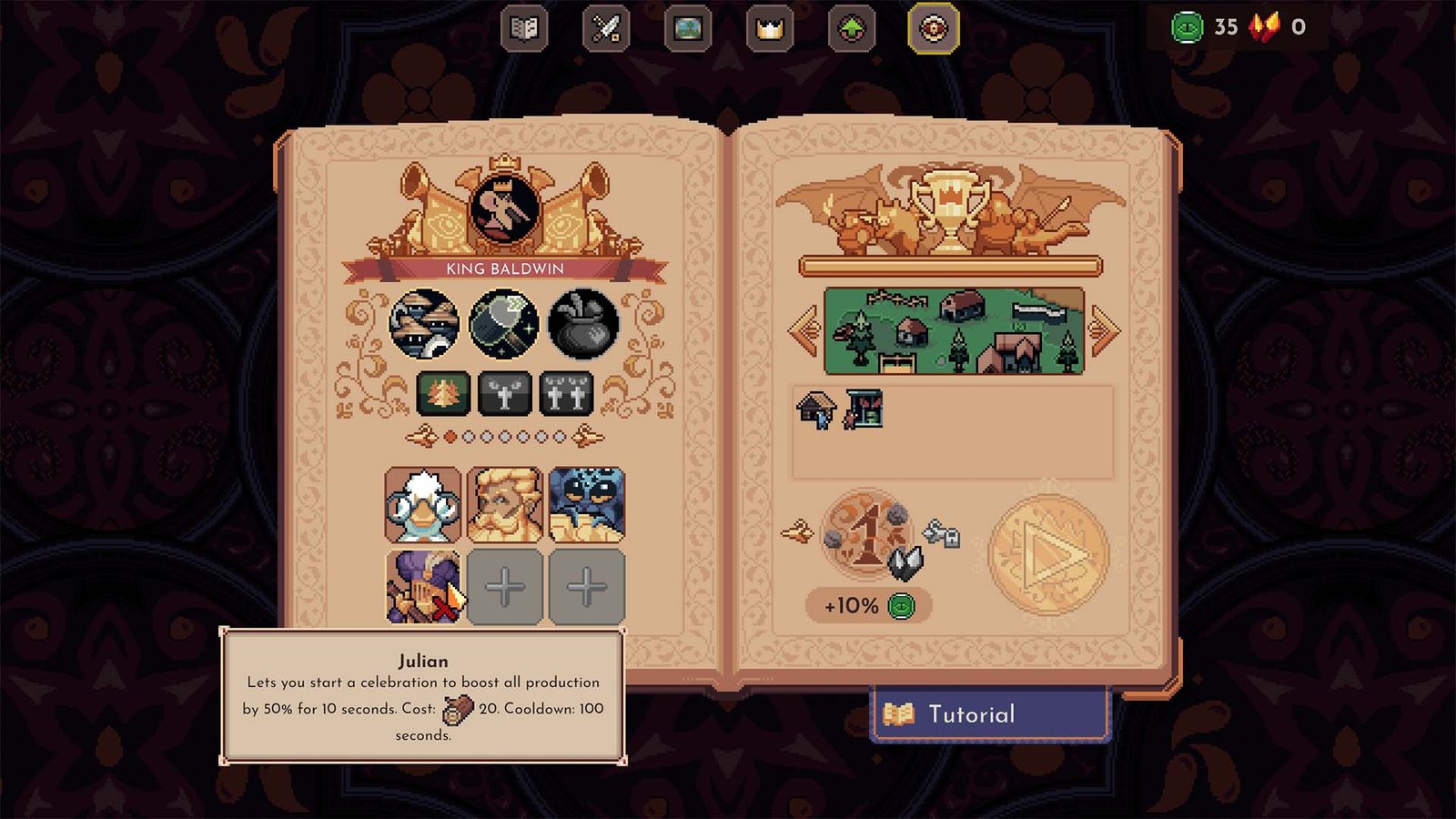
Your gaze is small at first; extended over only a few tiles. As time goes on, you can unlock larger gaze, new Kings with different passive abilities, and unlock buildings, spells, and upgrades in The King Is Watching.
This mechanic reorients nearly every decision: Do you place resource-gathering buildings along the edges, hoping to gaze far enough one day? Do you prioritise defensive structures that need constant attention? Do you build redundancies? Every layout, every upgrade is shaped by “What will I be looking at next?” or “What if I’m forced to look elsewhere?”
Calm, Panic, Calcified Regret
What The King Is Watching does well is create a rhythm of tension. Each run begins with hopeful planning: farms, lumber, workshops, and a few soldiers. The gaze is small. As you build, you feel the hum of production. But each wave of enemy intruders is coming. The game tells you when, roughly, the wave will hit, so that you can plan, but not always in time.
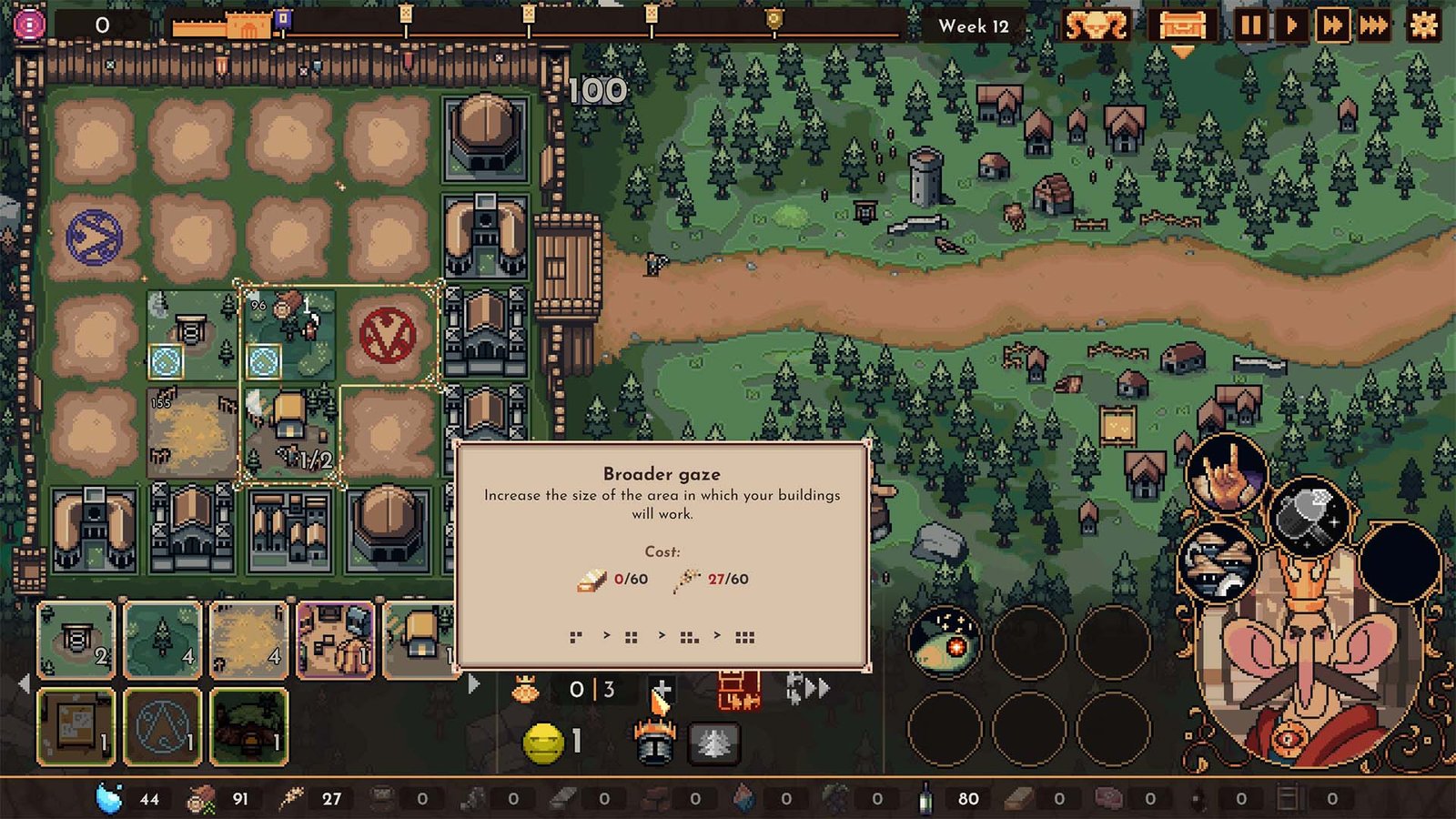
There’s that pressure point: you realise the castle is weak; you’re looking at your grain mills when a goblin swarm tears through your walls. You scramble. You reposition your gaze. But the damage is done. And when it ends poorly, you feel the weight of your earlier choices or your lack of foresight. That’s where the game hits emotionally: planning feels good, but consequence feels real.
Silence In The Halls
In the story the game tells through mechanics, there are gaps. Lore is very thin. The King Is Watching does not offer a rich backstory, complex characters, political intrigue, or shifting alliances. You are the ruler, but a largely quiet one. The advisors are functional; the kings have special abilities. But your emotional connection to the kingdom, to its people, remains abstract.
For many players, this will be okay, maybe even preferable. The focus is sharp: strategy, tension, planning. But for those craving a story, the quiet is noticeable. You never quite know why monsters are coming in such force, or what the deeper threat is. The end boss (or “end area boss”) exists, yes, but often feels like a mechanical obstacle rather than a narrative culmination.
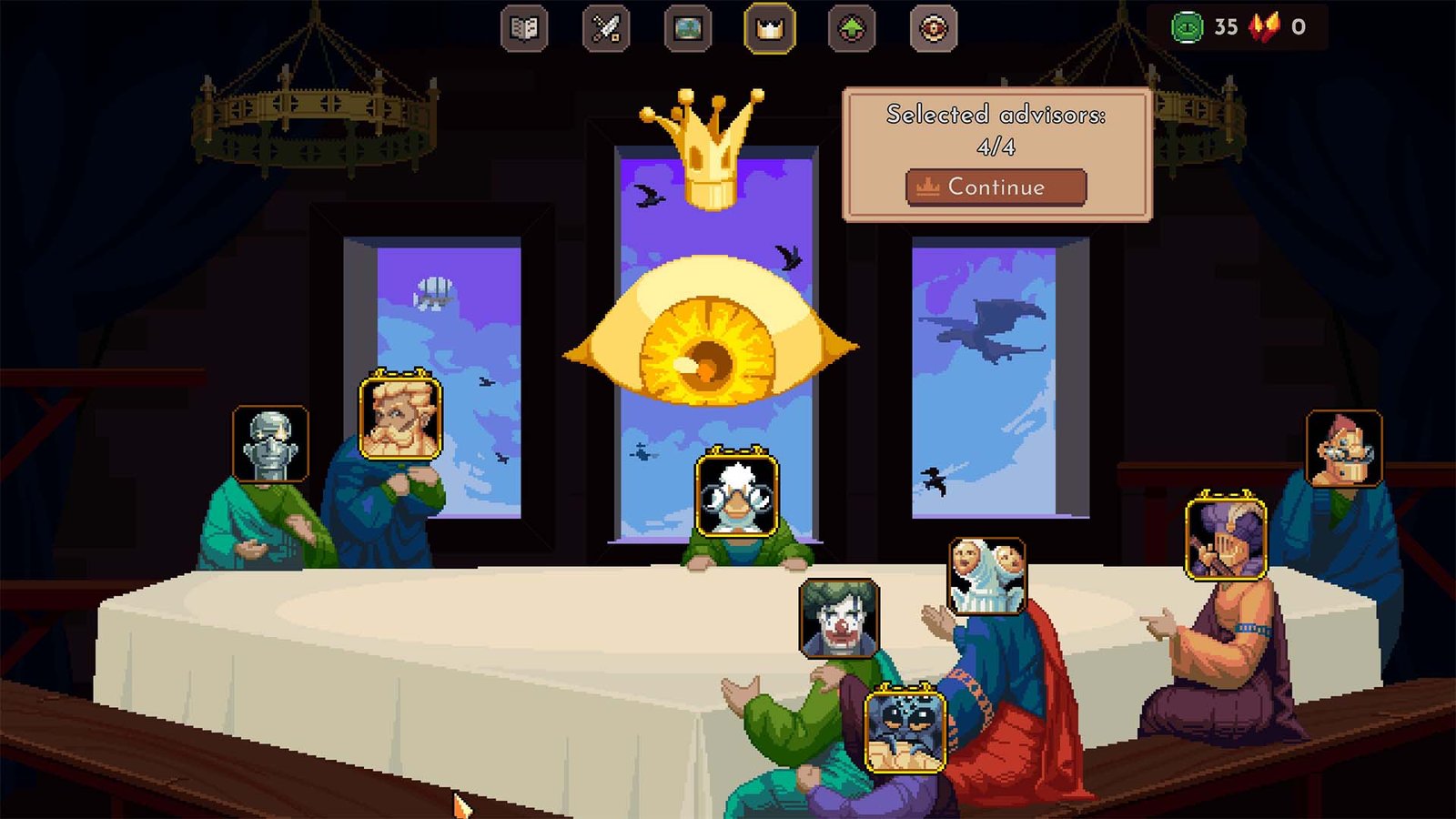
When Everything Aligns
Some runs feel transcendent when your gaze has expanded, your resource pipelines are humming, and your military is holding firm. In those moments, the aesthetic hum of victory is compelling: modest pixel-art builds, music swelling as danger approaches, your fingers dancing between decisions. The strategic and logistical puzzle becomes beautiful.
Also, the replayability is strong. Unlocking new kings with different gaze shapes or passive boosts, discovering new buildings or advisors, choosing wave difficulties, spells, all these add variety. Even runs that look similar on paper feel different in the small wrinkles of what resources you got, what enemies you faced, what combos you unlock.
Frustration, Repetition & One More Run
But the burden of the crown can exhaust you in The King Is Watching.
Sometimes you unlock buildings or get resource drops that throw your strategy off. What you hoped to build or defend with isn’t available, or your gaze size upgrades come later than you need. Plan, but be ready to scramble.
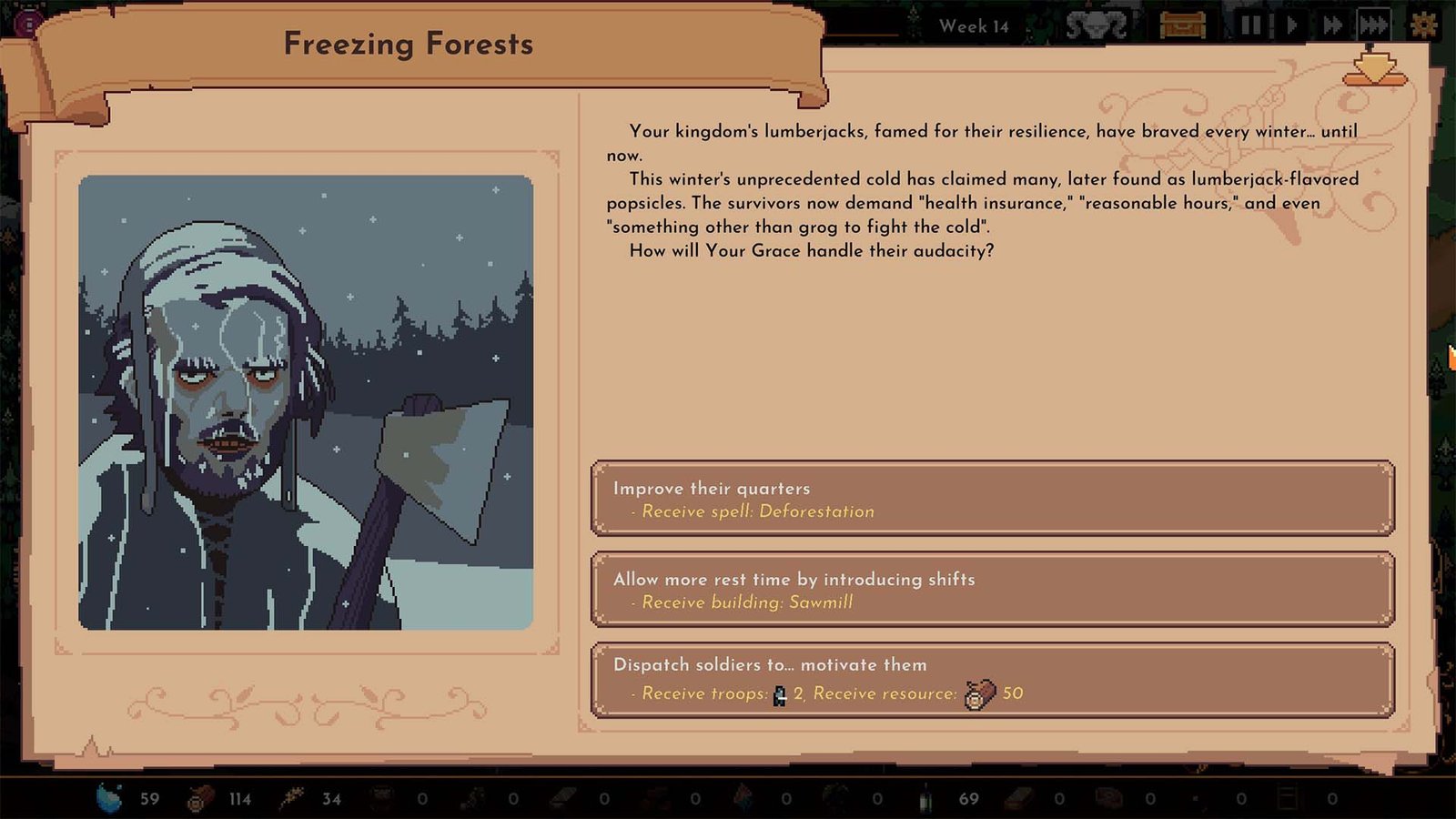
After many runs, certain runs start to feel like echoes of previous ones. Once you know many of the building types, many of the enemy waves, and many of the spells, what was novel becomes familiar. The map variety and event variety, while decent, aren’t consistently enough to keep surprises fresh.
More importantly, early runs can feel punishing. Resource gathering feels slow; managing the gaze and balancing production vs defence feels overwhelming at first. Some quality-of-life elements are helpful (tutorials, speed-ups), but the game expects the player to adapt fast.
Rule Or Be Ruled
The King Is Watching doesn’t attempt to construct an epic narrative with tragic backstories or intricate political machinations. What it offers instead is a distilled story: one of oversight and consequence, of what happens when you wield power but can’t be everywhere at once. The mechanics aren’t window-dressing; they are the tale.
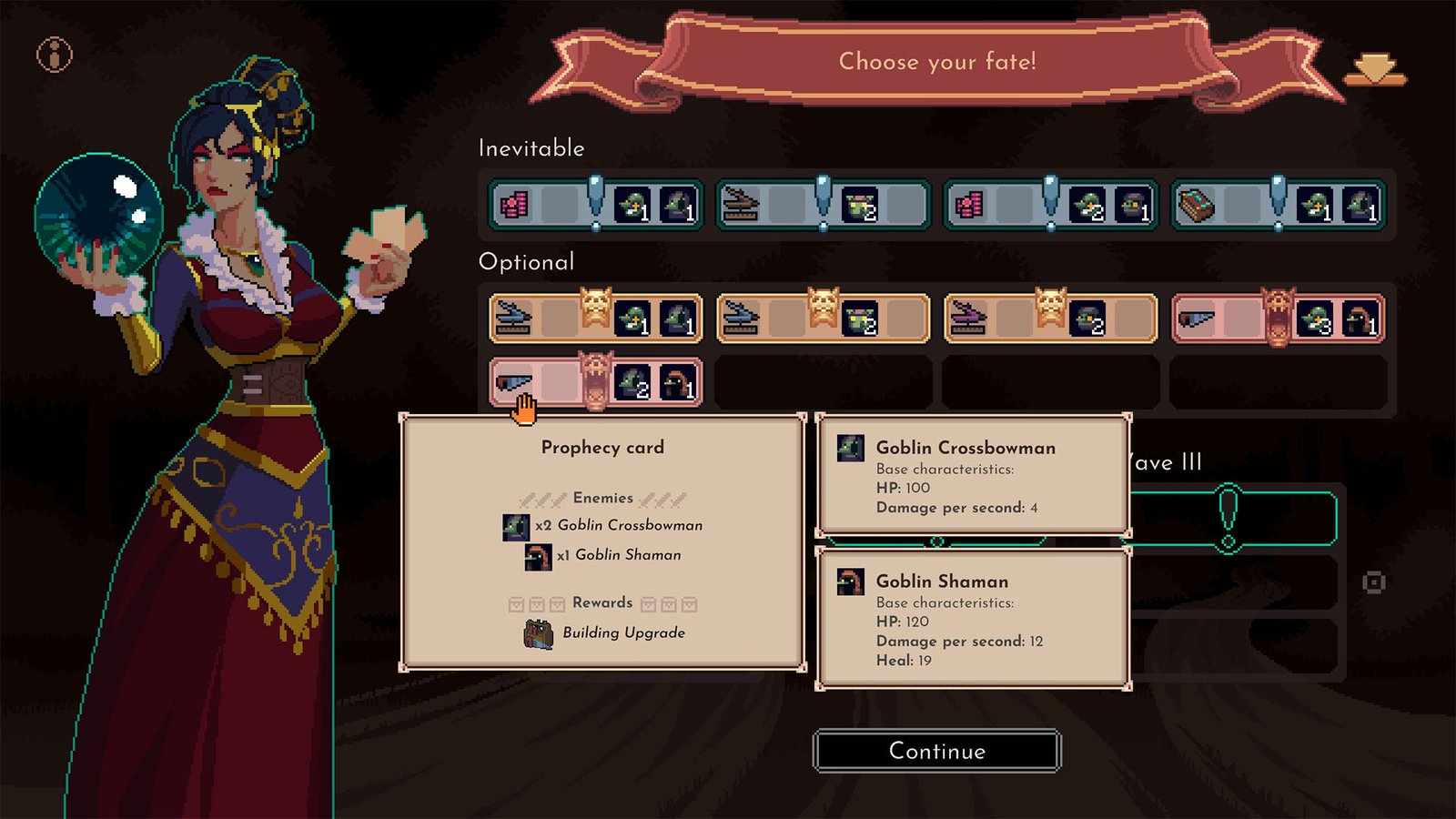
If you love strategy games that test your resourcefulness, your capacity to anticipate, your patience for trial and error — and don’t mind a scaffold of quiet story — you’ll find much to admire here. If you play for sweeping lore, character arcs, or narrative surprises, this game may leave you wanting.
I came into The King Is Watching expecting another roguelite base-builder. I leave with something more: a game that makes me feel the weight of the crown.
The King is Watching is available now on PC.
SavePoint Score
Summary
The King Is Watching is a clever kingdom-builder that thrives on its unique gaze mechanic, but repetition and punishing randomness mean its crown shines brightest in short bursts.

